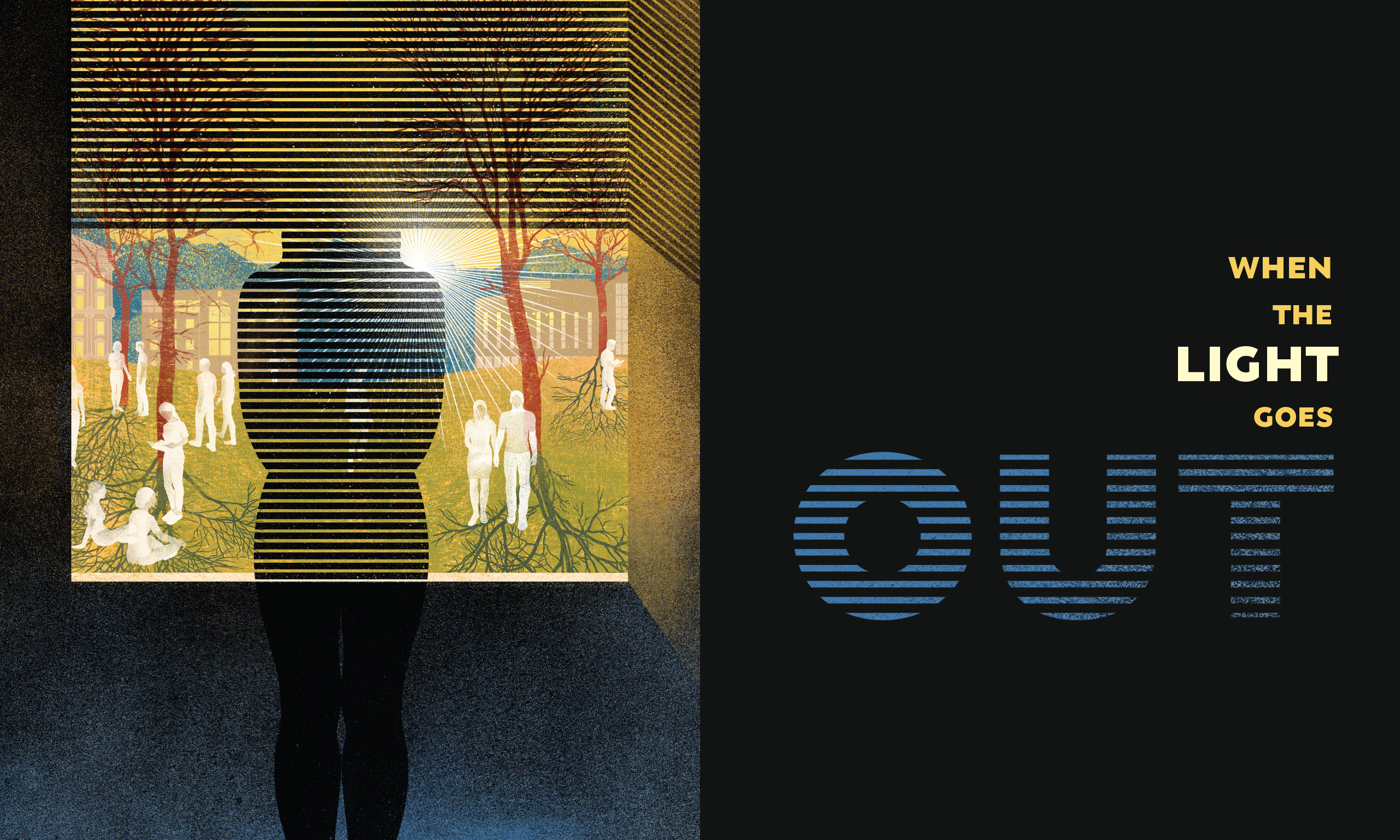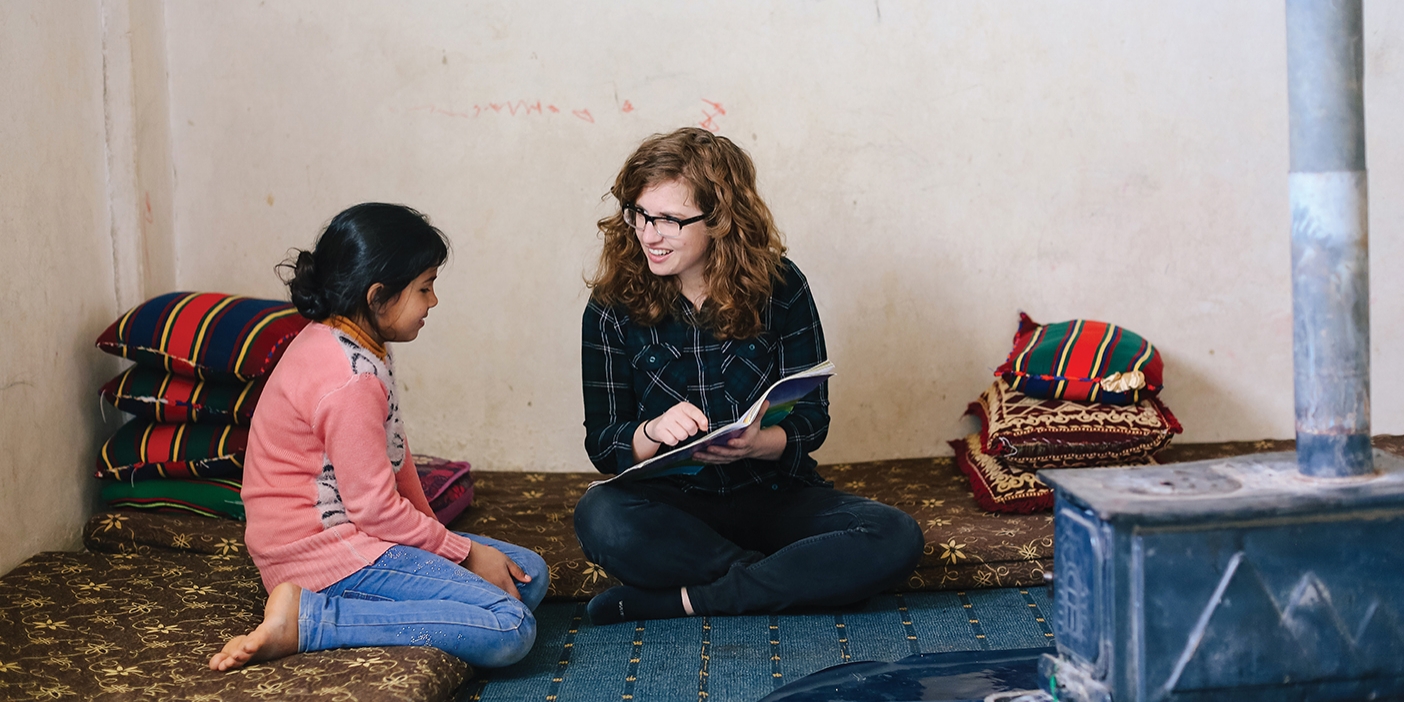What comes first, education and career or marriage?

Mattie is only 19, but she’s already feeling pressure to date seriously. Distressed by this, her mom, Shauna Pitcher Andersen (BS ’87), asked, “If you had a crystal ball and could see that you would marry at age 27, how would that change you now?” Mattie immediately exhaled, recalls Shauna. “She said she would relax. She said she wouldn’t try to analyze every date for potential and wouldn’t feel bad when she wasn’t dating. She would plan more confidently what she wanted to do between now and then. She would feel peaceful.”
Mattie is one of Shauna and Roger W. Andersen’s (BS ’87, MS ’88) four young-adult children, which include two single sons, ages 22 and 27, and one married son, age 25. For these four, as for almost all “emerging adults,” launching into the relationships and responsibilities of full adulthood, especially marriage, is more complex and takes longer on average than for past generations.
The dynamics undergirding marriage trends is the topic of a new book called The Marriage Paradox: Why Emerging Adults Love Marriage Yet Push It Aside (Oxford University Press), written by associate professor Brian J. Willoughby (BS ’04) and assistant professor Spencer L. James (BS ’06, MS ’08), both in the School of Family Life. Most people in their 20s today don’t see themselves as adults or teens, they say, but somewhere in between. Thus researchers have coined the term “emerging adult.”
The professors believe parents, friends, church leaders, and others can support this age group regarding marriage decisions by understanding current marriage trends and by not adding extra pressure and shame—factors that can lead to anxiety and depression.
The Changing Landscape
The age at first marriage for the general U.S. population is now 27 for women and 29 for men, up from 22 and 25 in 1980. No public information exists for the LDS population, but in Utah, the state with the highest LDS population, the age for a first marriage is now 24 for women and 26 for men.
A few decades ago most men without a college degree could find work with high enough wages to support a family. Today, even middle-income work is highly specialized and often requires a college degree or higher. Most women now plan to work for a significant portion of their lives, and many want to complete their education before marrying or having children.
Couple these factors with the sexual revolution, which made cohabiting an acceptable social norm, and a higher age at first marriage makes sense. In addition, marriage has moved from being a normative milestone in most everyone’s life to something that is now part of a wider buffet of socially acceptable options, say the professors. “Marriage is a want, not a need. You don’t have to be married to have a happy and fulfilling life. A previously clear path is now a splintered and winding road,” says James.
Contrary to conventional wisdom, however, declining marriage rates don’t mean emerging adults value marriage any less. In fact, most continue to value marriage as highly as their parents and grandparents, say Willoughby and James. But their parents tend to communicate that education and careers should come before marriage, and they’re following that advice.
“You can love marriage all you want, but if you receive the cultural message that you need to be done with education and established in a career, then you might like to be married but you’re not going to choose to do it,” says Willoughby.
Demystifying the Mystique
A hazard of delaying marriage, say Willoughby and James, is that anyone who spends years imagining an ideal future will likely build up unrealistic expectations. They’ve found that emerging adults set marriage on a pedestal—an ideal to be achieved when other adult responsibilities are in place. The result is “an overwhelmingly romanticized and mystical status” for marriage, says James. “They’re delaying it because it’s so important. A stable and healthy marriage feels like the Holy Grail to many.”
The professors also find that most emerging adults believe in the idealistic idea of soul mates and have the unrealistic expectation that marriage will de-stress their lives. “Many believe in a marriage relationship that doesn’t exist and may or may not ever come along,” says James. “They know it’s not common. They’ve seen lots of bad marriages. But they hold out hope for a perfect match.”
Eschewing Blame and Shame
LDS emerging adults are experiencing all the economic and cultural pressures of their non-LDS counterparts in addition to the pressures of forgoing premarital sex and of getting so many important things right the first time. “LDS pressure endows every decision—marriage, college, education—with the meaning that if you mess this up, you’re messing up your whole life,” says James. He advises parents to reduce this pressure by reassuring their children that few decisions are irrevocable and that support is always available.
Sometimes emerging adults view parental advice or intervention as shaming, even if a parent has no shaming intent. Shauna recently offered to set up her 22-year-old son with someone she considers a good potential match, but he said no thanks. She asked why. “He said that it’s like I am saying that he isn’t capable of finding someone on his own. I explained that I thought it was more like networking when looking for a job. He understood, but more important, I understood where he is coming from.”
Open conversations such as this are helpful, say the professors, but only to a point. Too much conversation around marriage initiated by parents can communicate deep concern, which can be interpreted as pressure. Both Shauna and her husband, Roger, carefully consider how often they bring up dating and marriage with their unmarried children. “We talk from time to time about dating and marriage, but I am careful to not make every conversation about their love life. I’m certain they appreciate this,” says Roger.
Embracing the Good in Change
Though some factors leading to delayed marriage are negative, James and Willoughby see many positives. In particular they believe the relatively recent valuing of men and women equally and the greater hope for healthy and satisfying relationships can foster better marriages. When marriage was about transfer of wealth and consolidation of power, it was more about social good, they say, not about making one another happy nor about both spouses being free to express themselves and pursue the life they want.
“These changes have brought about the possibility of true marital bliss—a celestial marriage where your happiness matters to me above everything else and vice versa. Husbands are supposed to change diapers. That makes wives happier,” says James.
Encouraging women to gain as much education as possible also leads to stronger marriages and stronger families, says James. “The increase in female college graduates has been fantastic for marriage. Maternal education is one of the best predictors of good child outcomes.”
James adds: “Parents who discern the positives in current marriage trends can help their millennials embrace the good. Marriages done well—and exactly what that means is unique for each couple—have a much better chance now of being celestial in the here and now. We don’t have to wait until the next life.”
Dos and Don’ts
Parents and others who support emerging adults can be more effective if they use this advice from professors Willoughby and James:
DON’TPressure your emerging adult about marriage. Chances are he or she already feels an overload of pressure.Project your own fears about your emerging adult onto him or her. What you fear for them is not necessarily what they fear for themselves.Create a family identity around any single pattern for a good life. Doing so can result in crushing feelings of rejection for those who don’t fit.DOModel a strong marriage for your children. As they see you enjoy a committed and healthy relationship, they will want the same experience. If you need help fortifying your marriage, get it.Talk about the realities of marriage, with its inevitable challenges, disappointments, joys, and rewards.Adjust to your emerging adult’s temperament, personality, and maturity as you talk about the future. No one-size-fits-all plan for a good life exists.Provide informed and loving support if your emerging adult experiences same-sex attraction or other variations of sexual orientation or identity.












